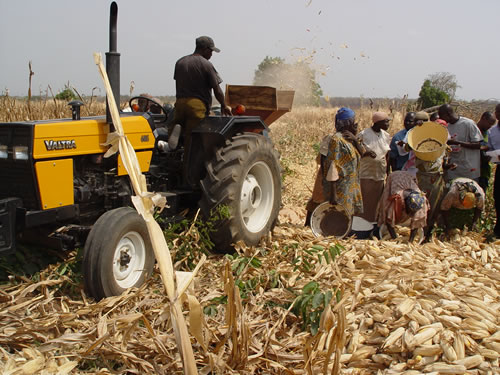An export consultant, Mr Godwin Okoh, on Saturday called on the Federal Government to set up processing factories to stop capital flights in the export sub-sector.
Okoh, who is the Chief Facilitator of OG2 Tech Consult and Investment, made the appeal at the opening of a two-day Export Trade Seminar in Lagos.
The News Agency of Nigeria (NAN) reports that chief facilitator made the assertion against the backdrop of the cost of unprocessed cashew nuts put at 1,200 dollars per metric ton, while the processed nuts cost 12,000 dollars.
He said that the export sector needed government’s unreserved support if the diversification drive from oil to a non-oil economy would be achieved.
“When we talk about cashew for instance, the gap created as a result of our low technological level is a direct consequence of the low technology in use.
“A processed ton of cashew is sold at the international market at 12,000 dollars per metric ton as against unprocessed one which is 1,200 dollars, so you can imagine the huge gap of over 10,000 dollars.
“To mitigate such challenges, government needs to set up processing plants. All the foreigners do is come here buy our products and take it to India and Vietnam to process.
“What is the processing all about? Just acquiring the machines to de-shell to the right quality and standard. So, government should come through the Bank of Industry (BoI),’’ he said.
According to Okoh, this is where the BoI should come in as a matter of urgency to support those who want to set up cashew processing plant so that they can create value and employment.
He also said that in the long run, the step would grow the country’s Gross Domestic products (GDP) derived from export and stop capital flight.
He called on commercial banks to be more helpful to export starters as a means of developing the sector.
Okoh said: “No bank is ready to assist startups and most of the facilities available for exporters are clearly inaccessible by a starter.
“An average starter today will require N2 to N3 million to export charcoal for instance, but government keeps coming out with different policies.
“Recently, there was an embargo on exportation of charcoal and log wood, so they are giving room for all kinds of inconsistencies in the system.
“The government must give priority to this sector if really it wants to see through diversification from oil to non-oil export,’’ he said.
Mr Mathew Anukege, Export Manager, JM Solutions Global Concepts Ltd., told NAN that road infrastructure was hampering transportation of commodities for export.
Anukege said: “Infrastructure, especially bad roads hampers development of the export sector because most commodities are sourced from the northern parts of the country.
“If goods are fixed, business will be better off for exporters, regulate prices of local commodities as most times farmers sell at any price they like; Mr A can sell at this price while Mr B is selling at another.
“Then the issue of selling our products to an international buyer who does not pay the exporter, government will not help the exporter to source that money,’’ he said.
Mr Gbenga Somuyiwa, a participant in the seminar, said that the training was a good insight into the export business.
Somuyiwa told NAN that the seminar revealed that there was more to commodity export that could transform agribusinesses.
NAN reports that at the end of the seminar, participants will be afforded the opportunity to access training on documentation and registration of export contracts among others.
Crops on display at the seminar included soya beans, sesame seeds, maize, groundnuts, sorghum, wheat, charcoal and cashew nuts considered crops with high export potential. (NAN)

